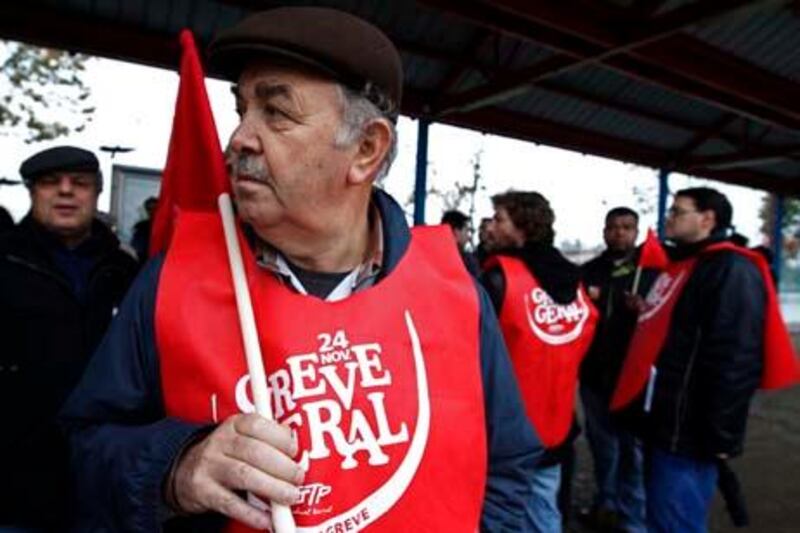Portuguese workers today stage what unions say will be the country's biggest ever strike in protest against the debt-laden government's austerity measures that will cause wage cuts and more job losses.
Both public and private sector workers will join the strike, which follows similar stoppages in other troubled euro economies such as Greece and France, as governments are forced into unpopular cost-cutting programmes.
More than 500 flights are due to be cancelled across the country, while major ports including Lisbon and Setubal will be paralysed, unions say.
The strike, the first time in more than 20 years that private and public sector workers have come together, will also hit banks, media and petrol deliveries.
"The mobilisation of workers is enormous," said Manuel Carvalho da Silva, the head of the major CGTP syndicate.
Portugal's main opposition party said on Tuesday it would not block the government's 2011 budget, paving the way for its adoption on Friday.
It aims to reduce the deficit from 7.3 percent of GDP to 4.6 percent next year in a bid to quell growing international unease over the state of its finances.
The budget will achieve this through an array of spending cuts and tax rises, including public-sector wage cuts, worth five billion euros (6.85 billion dollars).
"It is unacceptable that workers are making all the sacrifices," said unionist Joao Proenca.
"We cannot accept that the first, second and third priority of Portugal is the deficit," said Proenca, referring to the country's 10.9 percent unemployment rate, an all-time high.
Portuguese bond yields rose to 6.636 percent from 6.523 percent on Tuesday amid growing concerns over the country's deficit-reduction efforts.
The government on Monday announced that spending had actually increased by 2.8 per cent through October on a yearly comparison, raising the deficit to 11.9 billion euros.
Socialist Prime Minister Jose Socrates has rejected suggestions that his country is next in line after Ireland to receive an European Union bailout, saying that Portugal did not need financial aid.
The situation is even affecting the country's priesthood.
The archbishop of Braga has called on priests in his northern diocese to donate a month's wages to people suffering in the crisis.
"We live in extremely serious times. We cannot ignore this and must show a concrete love for the people," Archbishop Jorge Ortega said in a letter to priests.






